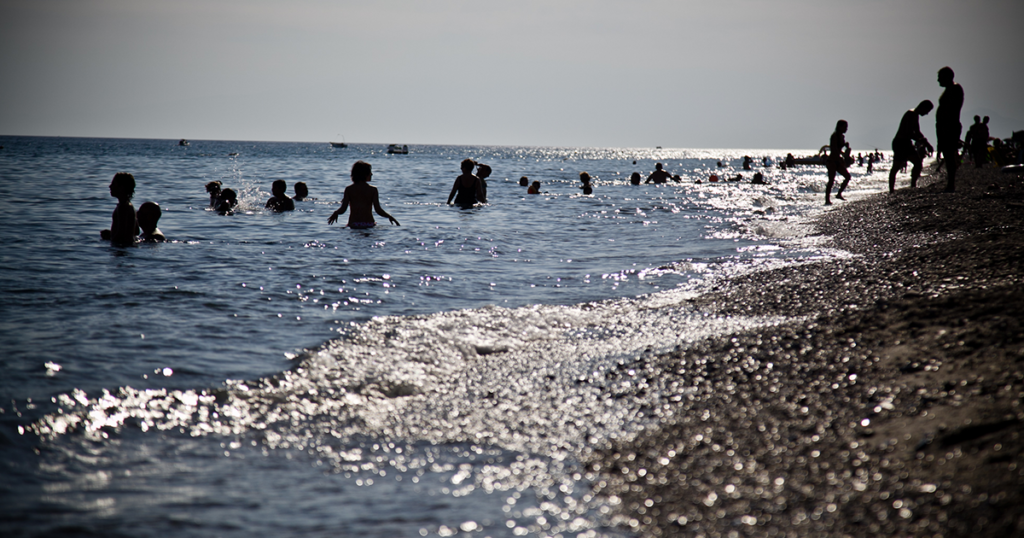
Almost every summer, my wife and I, now with two kids in tow, spend a couple of weeks in Italy. We first fell in love with the Ligurian coast just beyond France and Monaco, then with the Tuscan countryside around Florence, and for the past several summers, the islands off Naples. This year, we went farther south, into the instep of the boot, and are staying at a family-run agriturismo on the Mediterranean coast of Calabria. Along with several other friends, my brother and his blond-haired, tan-skinned half-Russian five-year-old daughter have joined us. This morning, the two of us drove into the small seaside village down the hill from where we’re staying to pick up some pizzas. I went inside and fumbled my way through the somewhat complicated order that demanded anchovies, artichokes, and for one picky eater, a tomato-less pizza.
A nice, physically fit gentleman in his late 60s suddenly appeared beside me and, flitting between a London-inflected English and flawless Italian, sorted out all the misunderstandings in my order. He introduced himself as Walter, and after his wife approached, they invited me to join them for a drink at their table. “Where are you from?” they asked me. “New Jersey,” I said, and after some commotion half the staff in the kitchen came out to tell me—through British translation—that they and some 500 members of their Calabrasian clan had repatriated back to Italy after having lived for several generations in Hoboken, a 37-minute drive from where I was born.
It was yet another reminder that the world is small and fueled by immigration. In the aftermath of last weekend’s massacre at a Walmart in El Paso, we are talking again about the nativist fear of “replacement” and the violence it engenders.
“Where do you live now?” Walter and his wife asked me.
“In Paris,” I said.
“Lot of black people there,” he said. “I hear the city has been completely taken over.”
“All the crime in London, it’s just the black people,” his wife added in a heavy Hackney accent. “They come, and they cause problems. That’s why Trump is right and why we needed the referendum on Brexit.”
My brother appeared at the same time as the pizzas. I thanked Walter and his wife for their assistance, and left their table, not angry at them so much as amazed by their lack of self-awareness. Before we could leave, they invited us to join them one night for dinner. Walter’s skin was darker than mine at its tannest. It’s safe to say we both have African DNA. I liked him, and felt sorry for him, and wondered—as I frequently do—what it will take for us to ever get past this dangerous fiction of racial difference.

